From Seed to Plate: Radishes for Every Garden
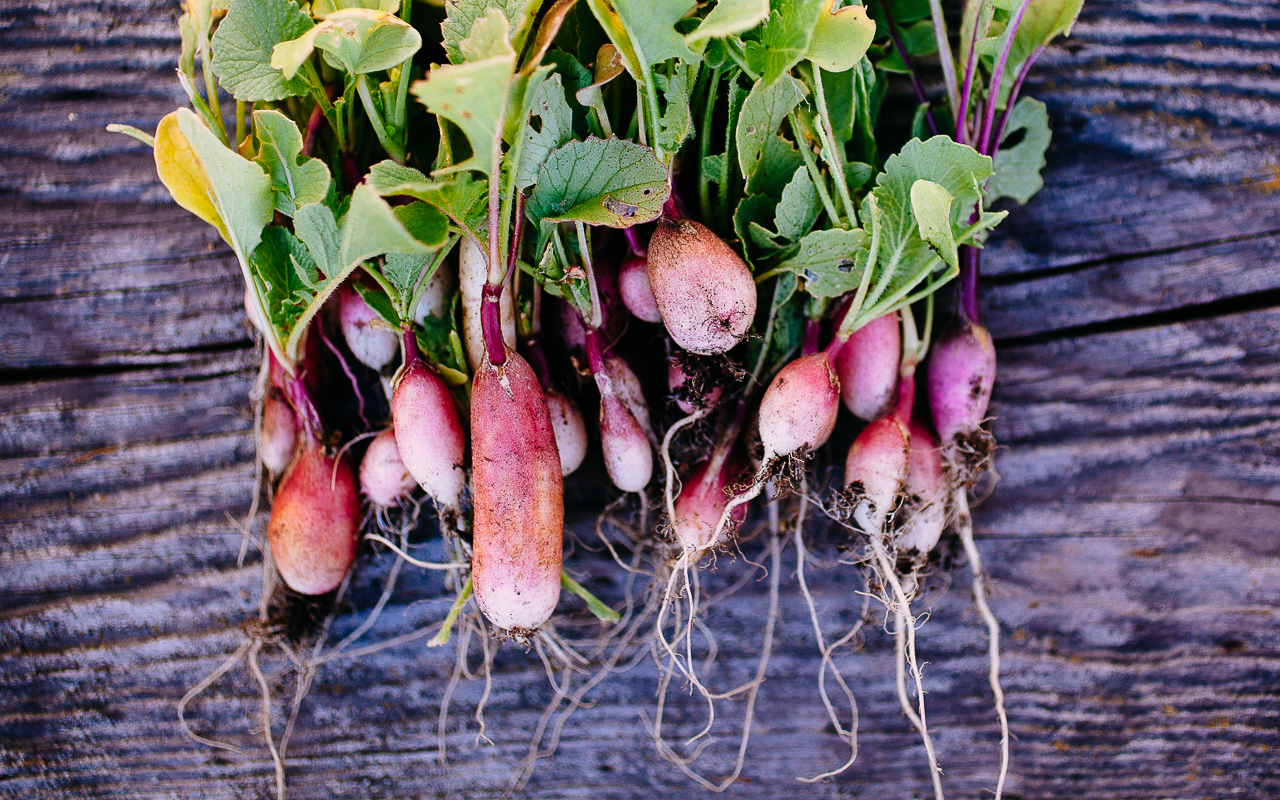
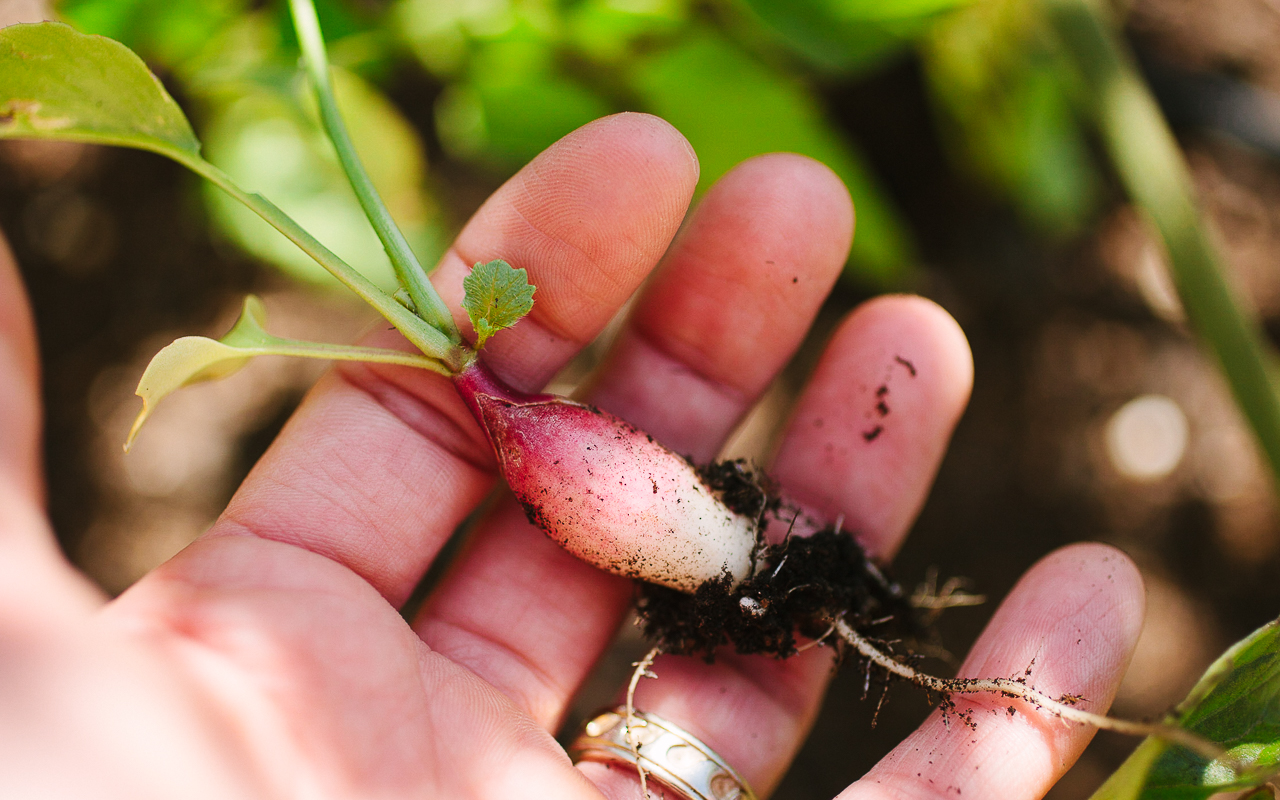 Grow radishes from seed to plate for the easiest and rewarding garden.
Grow radishes from seed to plate for the easiest and rewarding garden.
Radishes may not be as stylish as other, more celebrated kitchen garden crops such as tomatoes or kale, but they’re carefree, abundant and savory. Give them a whole patch of their own, companion plant with carrots, or tuck them into corners and between other veggies. They don’t need a dedicated bed just a little space carved out here and there and you’ll have a regular snack and kitchen garden favorite.
Get More from your Plot with these Succession Planting Tips
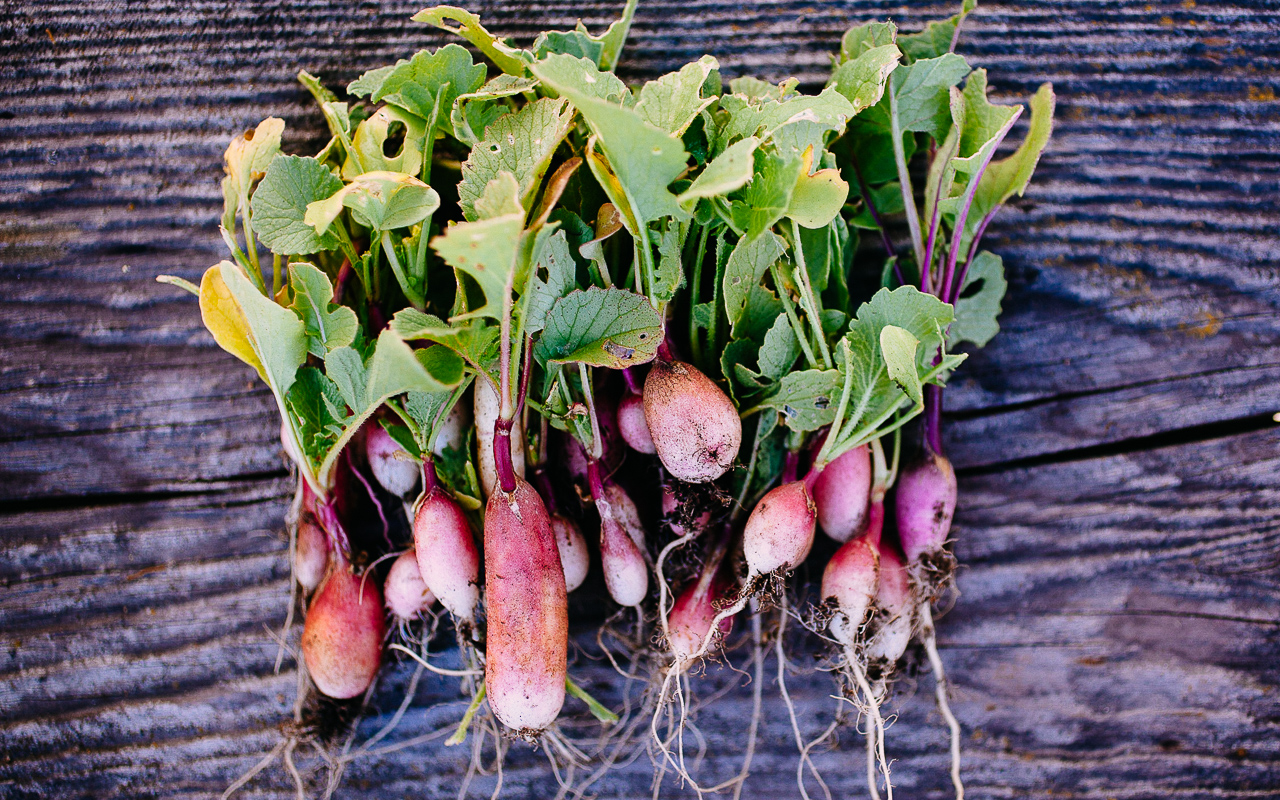 HOW TO GROW
HOW TO GROW
Chuck seeds straight into the soil about 1/4 inch deep and 1 to 2 inches apart. No need to pre-sprout and transplant. They’re vigorous and happy to grow.
Radishes prefer rich, well draining soil and medium to regular water. It’s ideal for soil to remain moist but not water logged. A healthy dose of organic compost will provide easy to access nutrients, hold moisture and perform as the perfect mulch.
Most varieties grow well in mild climates or in shoulder seasons before or after intense summer heat. Right about now is a perfect time to plant and you don’t need much space. So what are you waiting for?
WHEN TO HARVEST
Radishes mature in just 3 to 4 weeks. Move soil away from the root zone at the base of the plant to get a visual. If radishes are well formed and an inch or so in diameter, they’re ready to harvest. If not, simply push the soil back in place and let them continue to grow. Leave them in the ground too long however, and they can become overly pungent. Check them frequently so you don’t miss your window.
When ready, pull them from the soil as you would a carrot or other root vegetable and reseed as you go.
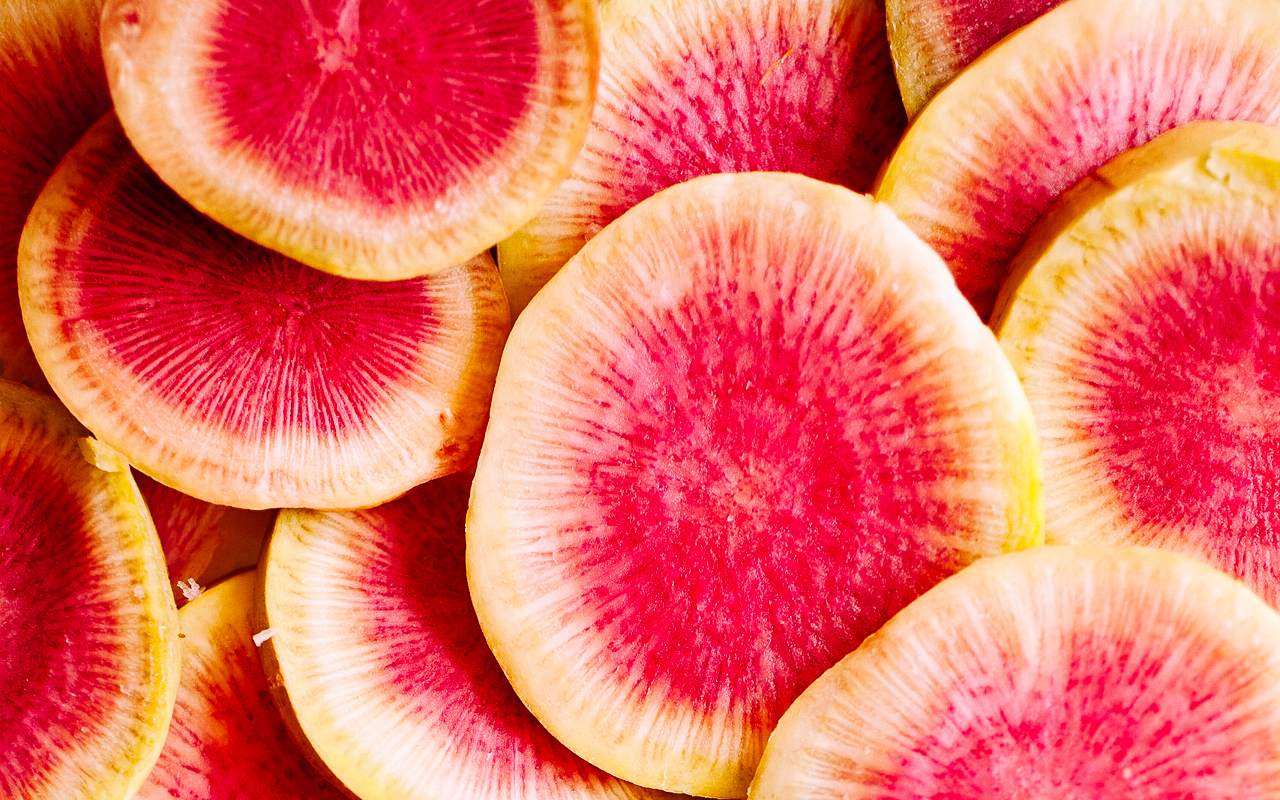 GARDEN-TO-TABLE COOKING IDEAS
GARDEN-TO-TABLE COOKING IDEAS
I have two cookbooks I love right now. One is River Cottage Veg: 200 Inspired Vegetable Recipes and the other is Deborah Madison’s latest book, Vegetable Literacy: Cooking and Gardening with Twelve Families from the Edible Plant Kingdom, with over 300 Deliciously Simple Recipes
So many wonderful ideas and flavor mixes are in each, they always get my mind moving on how I can rethink what I cook but also keep it simple and doable.
Between the plants and the books, it’s like a series of mini celebrations. How can I go wrong? Eat them plain, pickled or roasted — with fish, in a bean salad, slaws, tacos or braised. Of course raw and straight from the garden is a must but my new favorite is roasted with olive oil, salt and pepper.
Simply clean and toss with olive oil. Place in a roasting pan and top with fresh ground pepper and salt. Bake at 350 degrees for about 30 minutes and remove from the oven when tender.
Serve with freshly chopped radish greens and other roasted veggies.
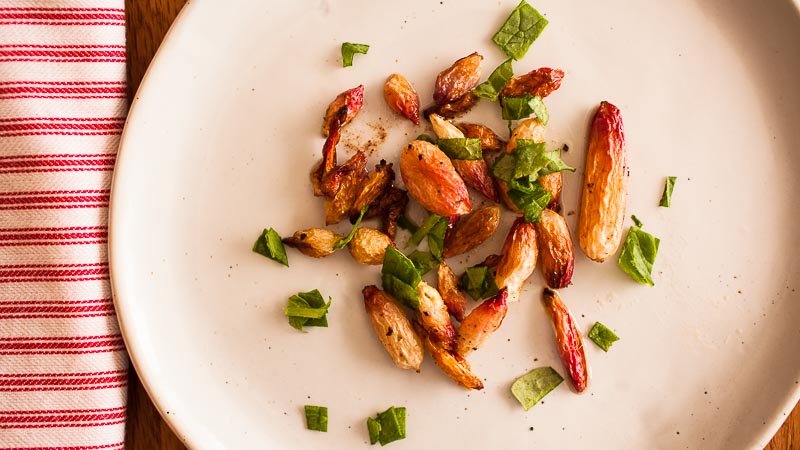
I also love them on sandwiches. The one below is with pesto and mozzarella but, like carrots, they could be added to anything. A bagel with cream cheese, mustard dill sauce and olives topped with watermelon radishes for instance. Now that sounds amazing.
Radishes aren’t ranked in the top 10 as a nutritional power house but that doesn’t mean they’re not good for you. They contain vitamin C, iron and other nutrients. They’re high in phytonutrients, fiber and are known in Ayurvedic medicine to help eliminate toxins.
It’s worth giving them a fresh look and a new place in the garden and on the plate.
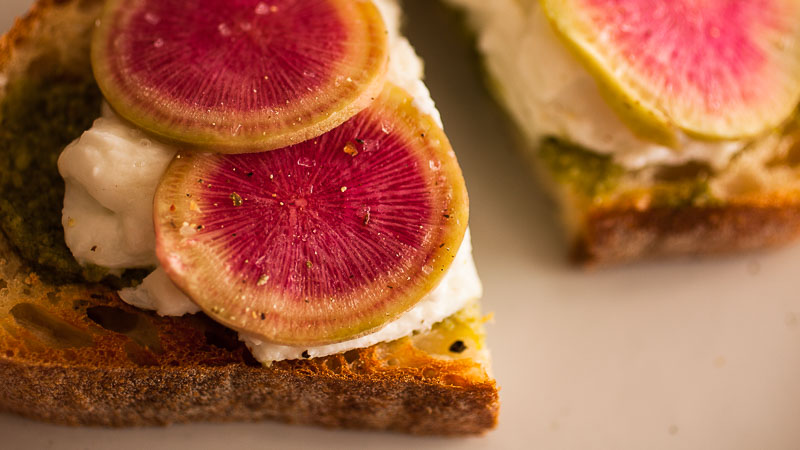
Other articles you might enjoy:
Superfoods: Grow & Eat a Rainbow of Colors
Container Garden Carrots from Seed to Plate
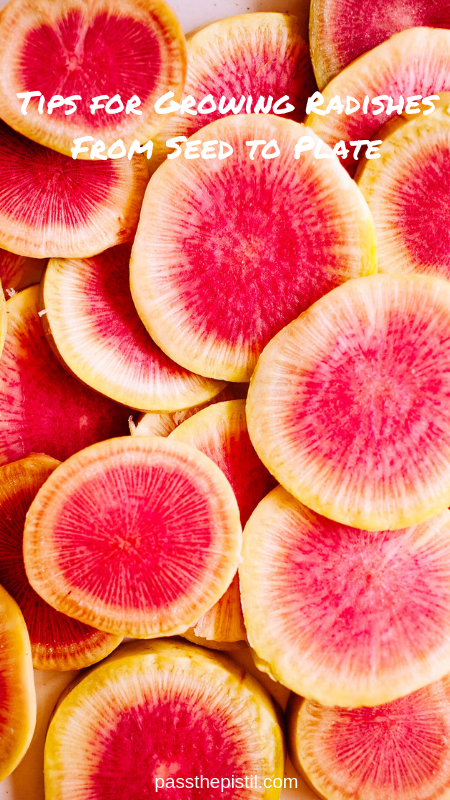
Listen
Buy The Book
Special offers
Newsletter Signup

Archives
Disclosure
Pass The Pistil is a participant in the Amazon Services LLC Associates Program and other affiliate programs such as Etsy, affiliate advertising programs designed to provide a means for sites to earn fees by advertising and linking to curated affiliate sites.


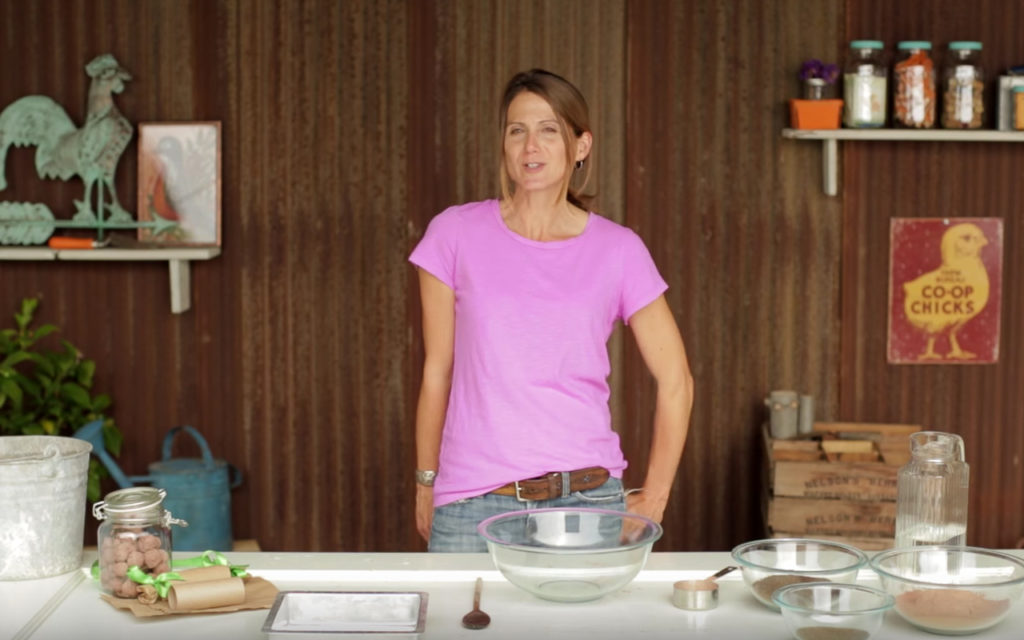






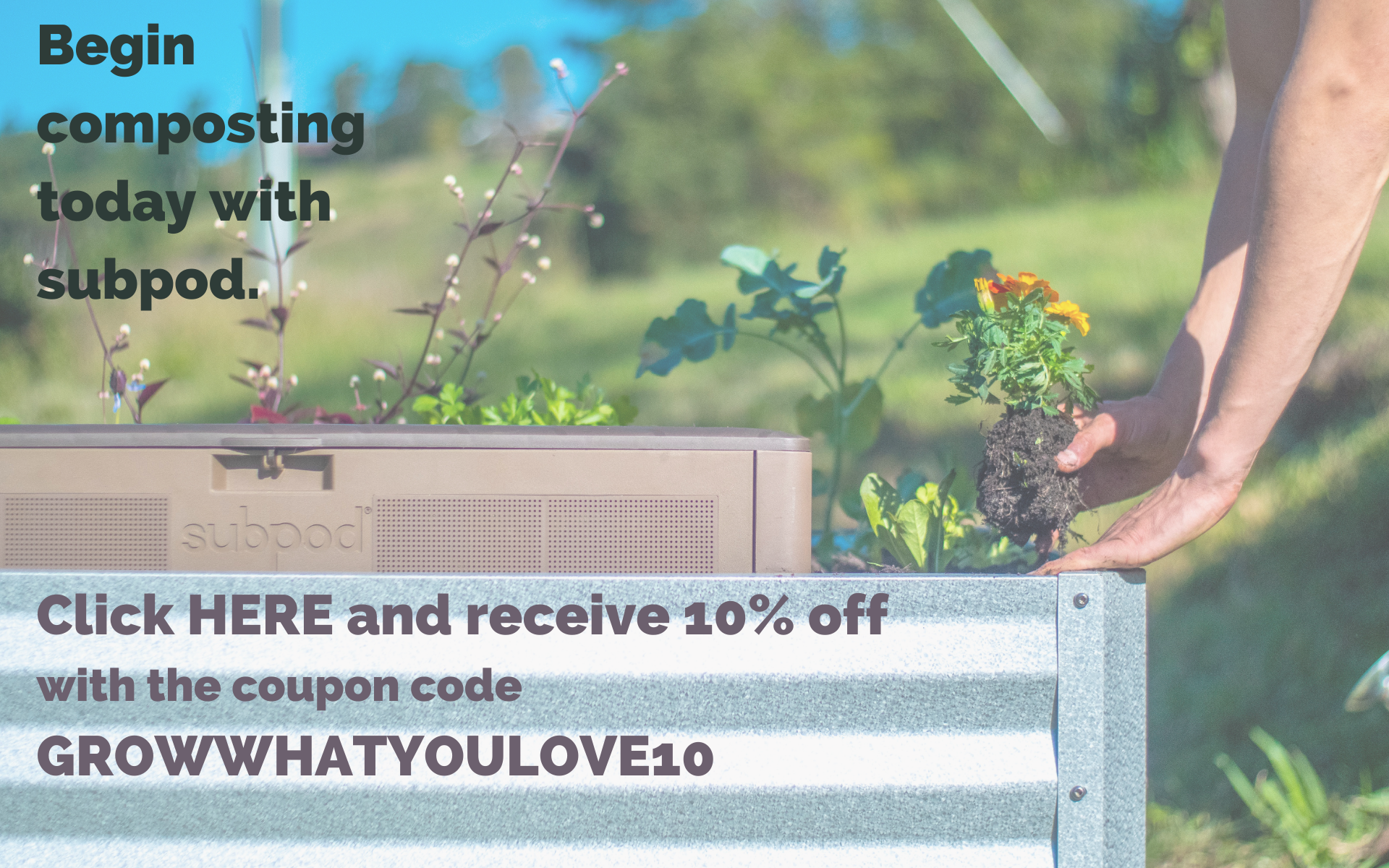
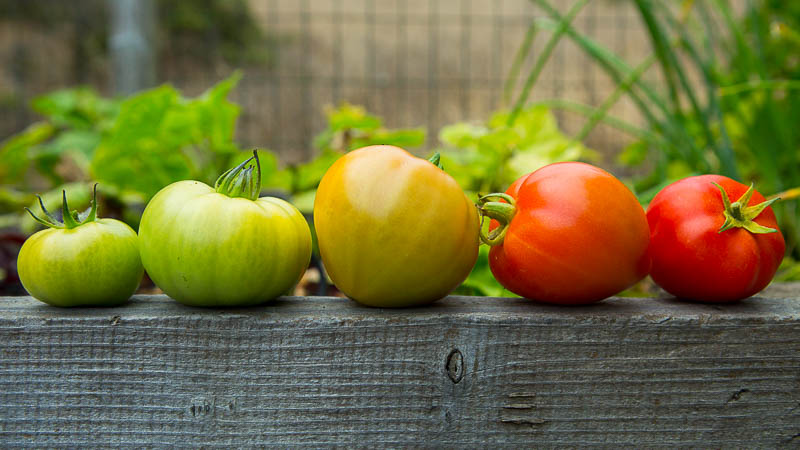
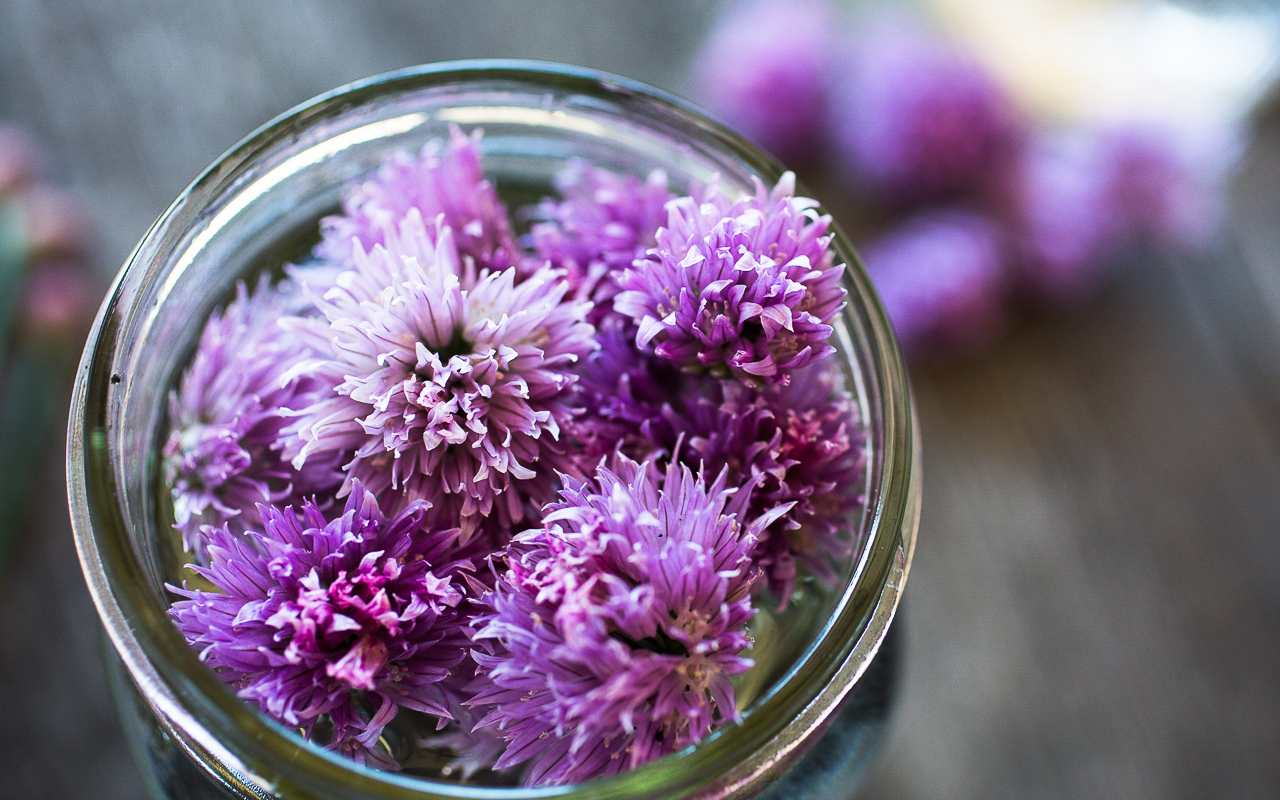
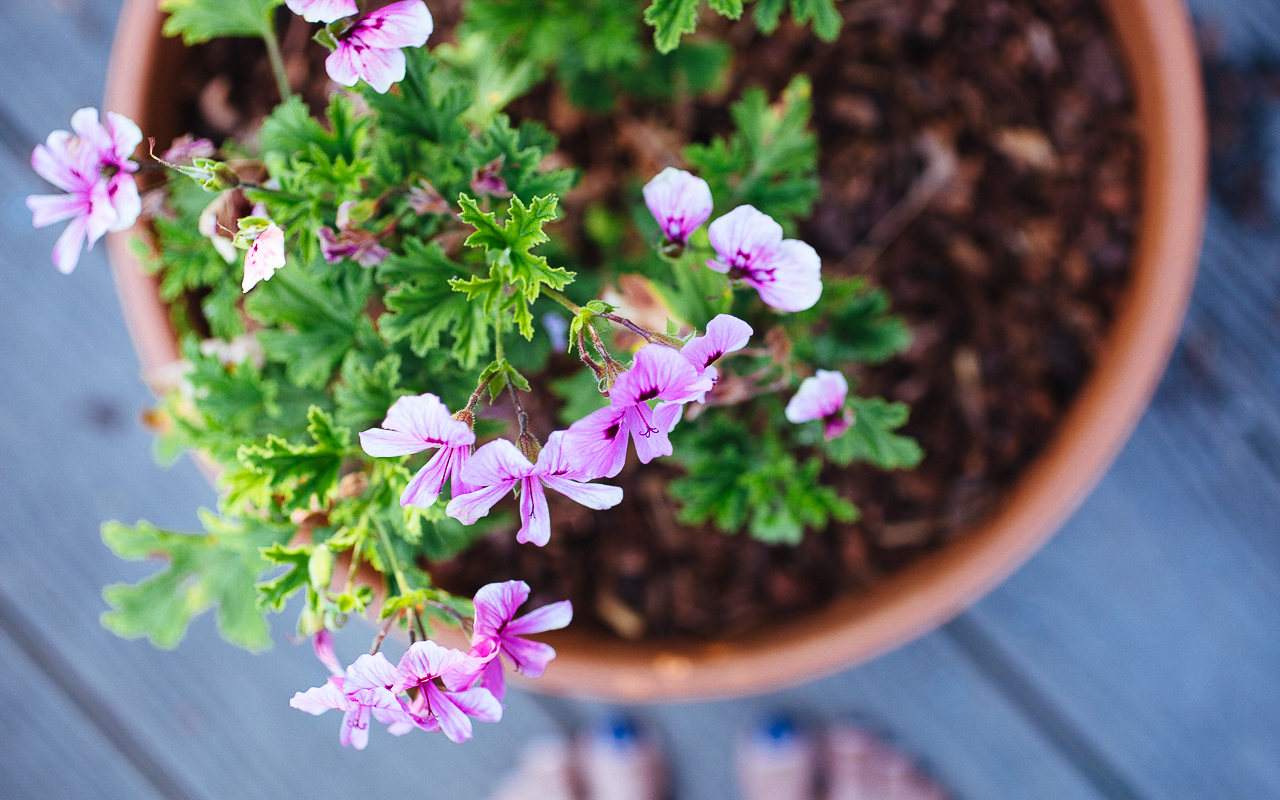
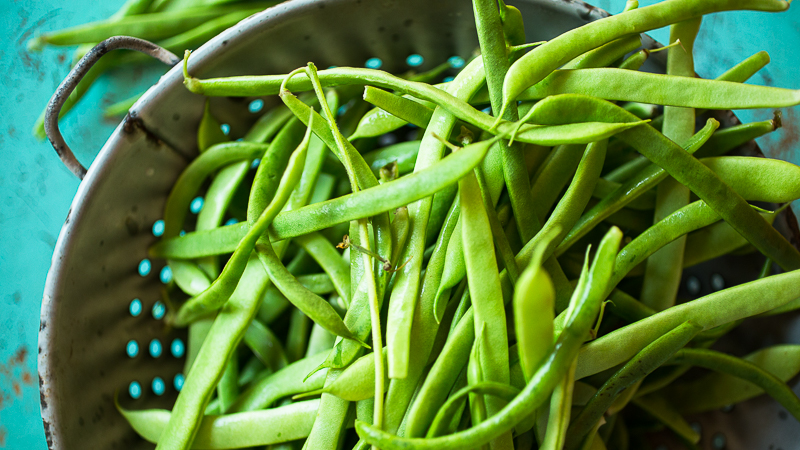
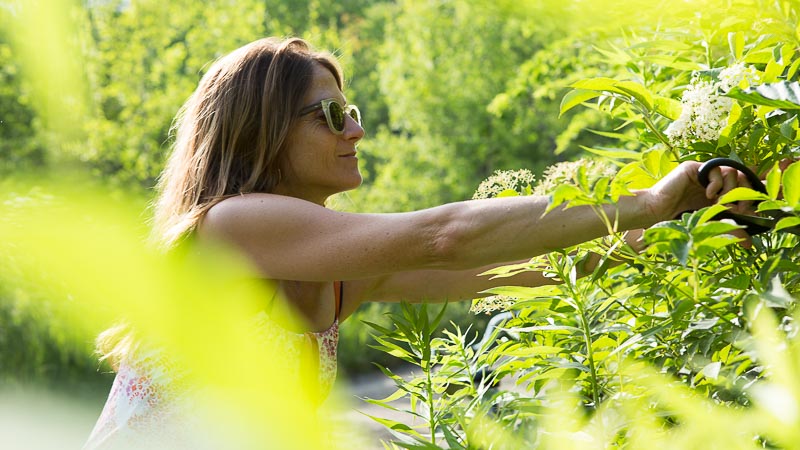
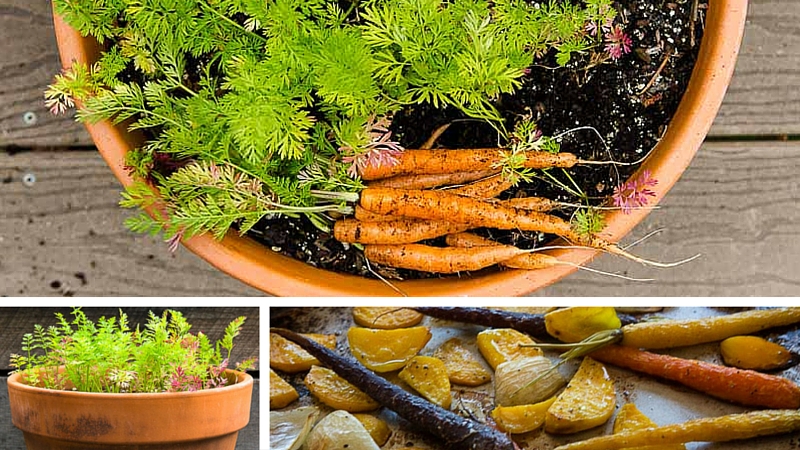


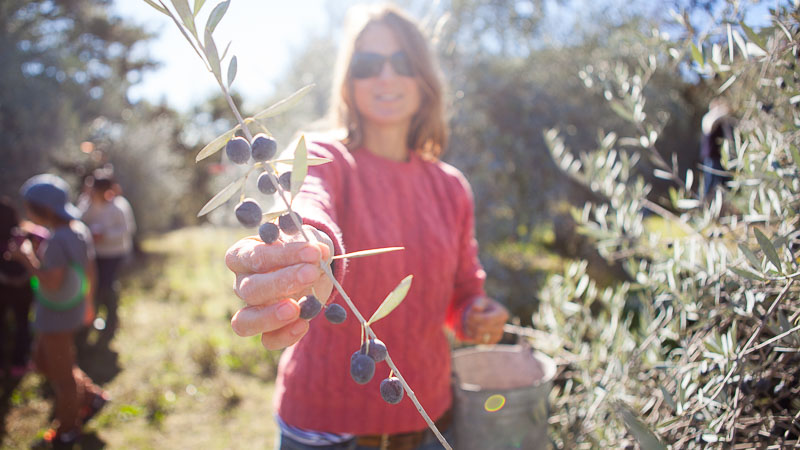
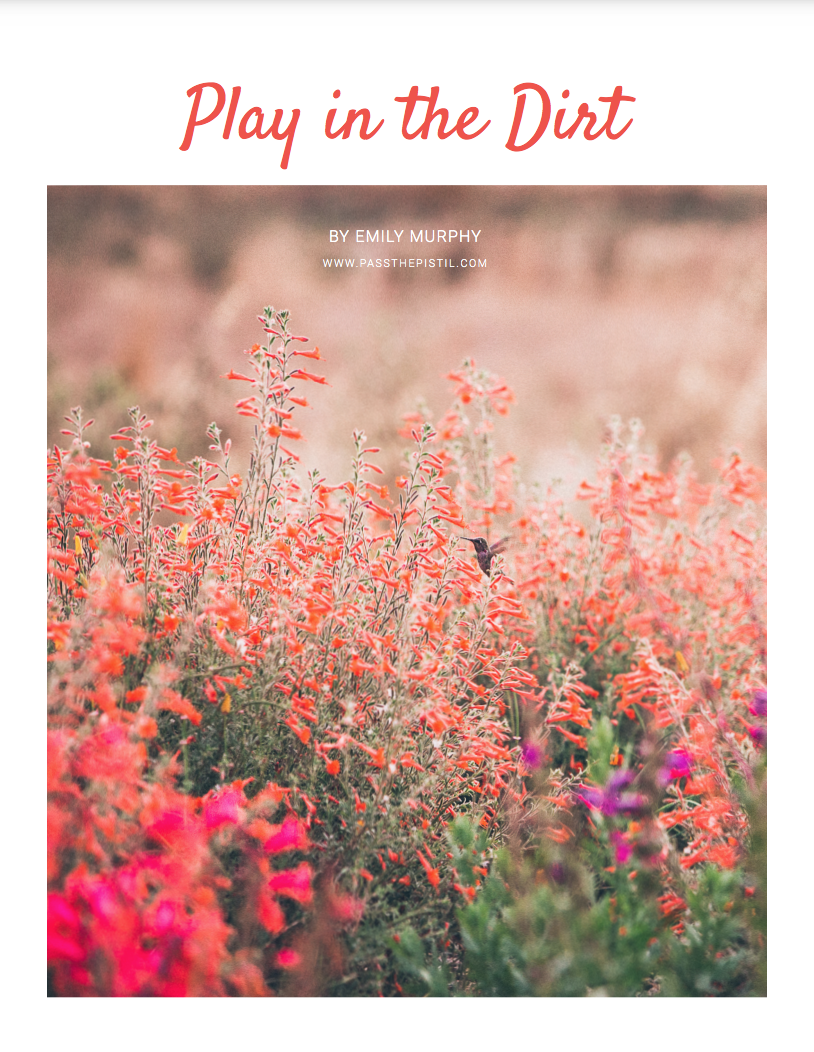

I like the sound of roasted radish. I’ve always struggled with the radish in the kitchen. The kids and I love growing them but they tend to go on the compost heap, which I always feel is such a shame. Looking forward to trying them again. Thanks for the inspiration.
You’re welcome! I was inspired too – for many of the same reasons. They’re the perfect veg to rethink, in part because they’re so easy to grow. Why not find the same reward in eating them? :)